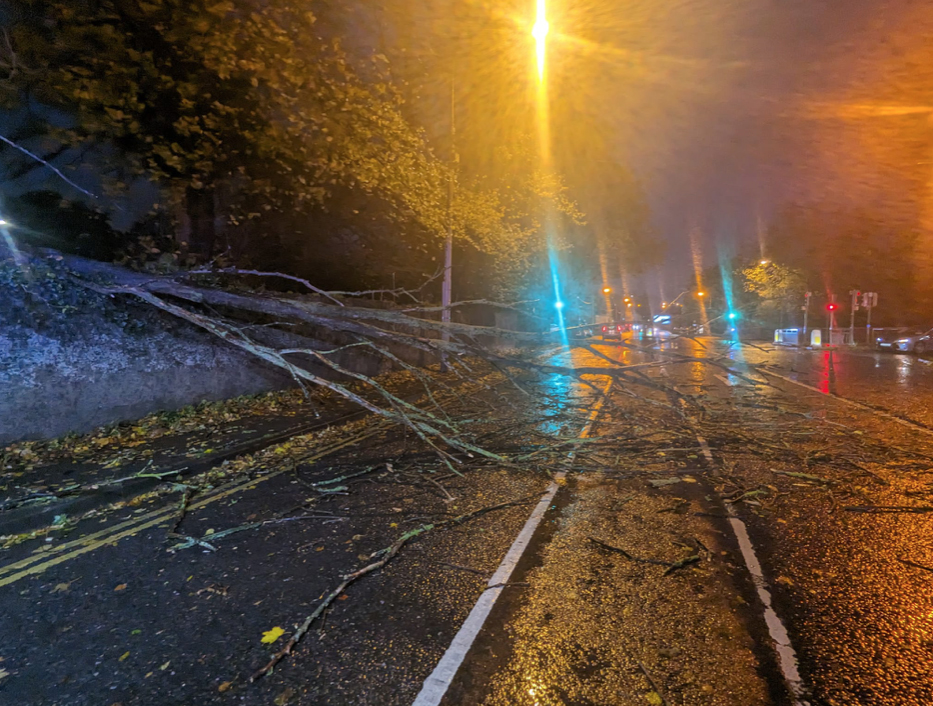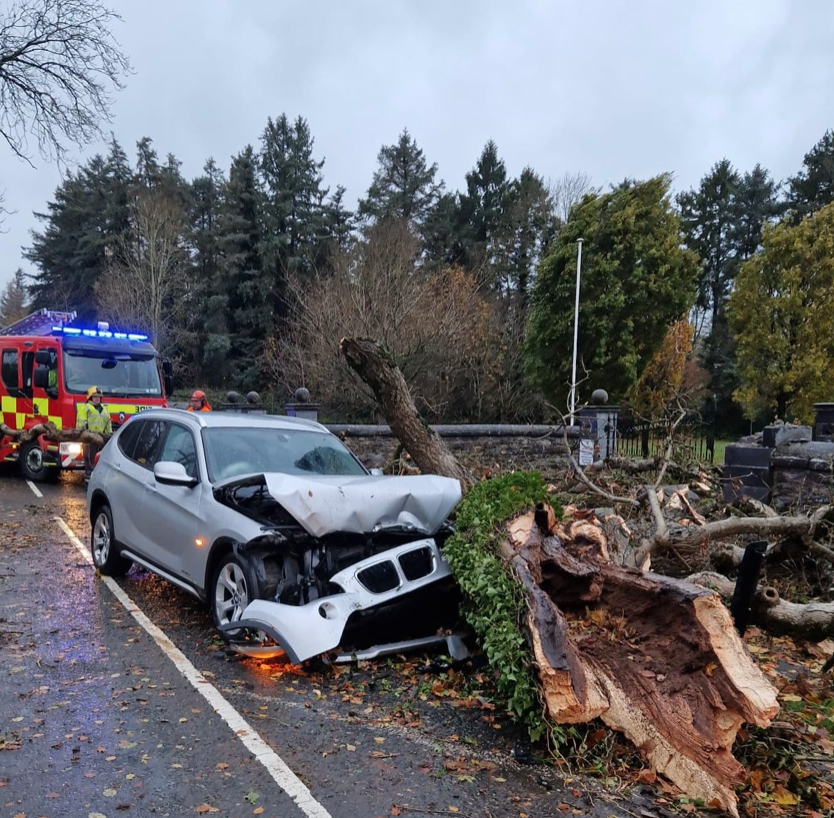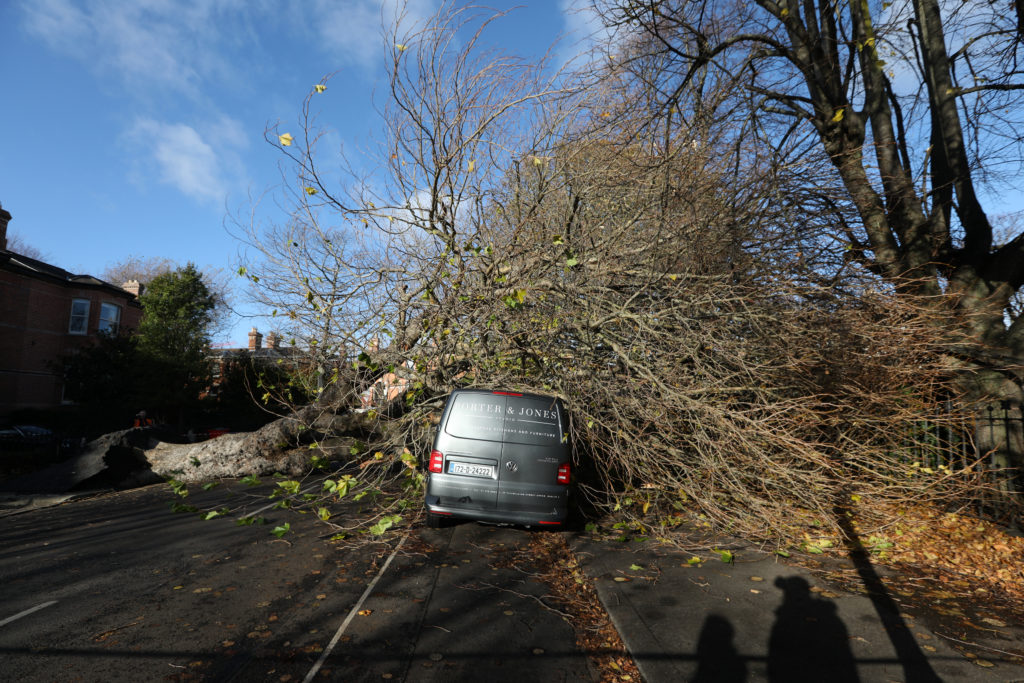FINANCIAL aid for homeowners affected by the impact of Storm Debi in Ireland has been extended to Galway, the government has confirmed.
Galway was one of the counties worst hit by the storm when it landed in the early hours of yesterday morning, bringing with it strong winds and heavy rain.
The western county was hit by flooding and severe disruption to services as the violent weather conditions continued throughout the morning.
Oranmore and parts of Galway city bore the brunt of the disruption, with schools across the county and some businesses forced to delay opening until 10am.
 Fallen trees in Donnybrook as Storm Debi hit Ireland yesterday (Pic: Dublin Fire and Rescue)
Fallen trees in Donnybrook as Storm Debi hit Ireland yesterday (Pic: Dublin Fire and Rescue)Other counties which were hit included Dublin, Cavan, Meath and Limerick, with the clean-up operation still in effect across the country in the wake of the storm.
In a statement the government confirmed that its Humanitarian Assistance Scheme is now available to householders affected by the flooding in Galway and will be “extended to other affected areas as required”.
The Scheme is designed to provide income-tested financial support to people whose homes are damaged from flooding and severe weather events and who are unable to meet costs for essential needs, household items and structural repair.
“I’m very conscious of the serious disruption that severe weather and flooding caused for individuals and families in County Galway, especially in Oranmore and parts of Galway City,” Minister for Social Protection, Heather Humphreys said.
“The Humanitarian Assistance Scheme is open and support is available,” she added.
“I recently secured a further €3million in funding for the Humanitarian Assistance Scheme administered by my department.
“In addition, in recognition of the supports needed I have recently increased the income limits for the scheme from €30,000 to €50,000 for a single person, €50,000 to €90,000 for a couple and €10,000 to €15,000 per dependent child.
“If any homeowner affected by severe weather needs to access these supports, they can contact the Community Welfare Service by phoning 0818 60 70 80.”
 A car is damaged by fallen trees in Meath during Storm Debi (Pic: Meath County Council Fire and Rescue)
A car is damaged by fallen trees in Meath during Storm Debi (Pic: Meath County Council Fire and Rescue)When dealing with emergency events the scheme works in three stages.
The first stage provides emergency income support payments – for the likes of food, clothing and personal items - in the immediate aftermath of the event.
The second stage supports the replacement of ‘white goods’, such as basic furniture items and other essential household appliances.
In the third stage, the scheme will review what longer term financial support is required by the recipients for their households, which can include plastering, dry-lining, relaying of floors, electrical re-wiring and painting.
 Storm Debi caused severe disruption across Ireland
Storm Debi caused severe disruption across Ireland“Levels of payment under the scheme depend on the relative severity of damage experienced and the household’s ability to meet these costs, ensuring that the funding is appropriately targeted,” the Department of Social Protection confirmed.
“The income test for Humanitarian Assistance is more generous than that applied under means tested Social Welfare payments in general,” they explain.
“The basic principle of the income test is that individuals and families with average levels of income will qualify for assistance, including non-Social Welfare recipients.”
The Scheme is solely for people whose homes are affected, it does not cover risks that are already covered by insurance policies nor business or commercial losses.

